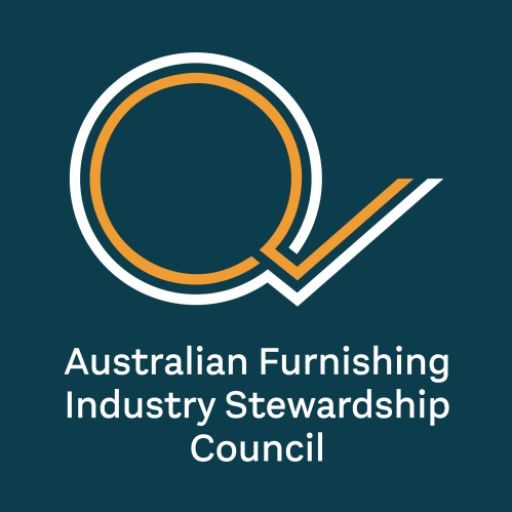The Australian Furniture Association (AFA) and the Australian Furnishing Industry Stewardship Council (AFISC) are urging the furniture sector to take note as the Australian Competition and Consumer Commission (ACCC) shifts from signalling to action in its crackdown on greenwashing. A noticeable increase in legal proceedings and public penalties confirms the regulator’s intent to hold businesses accountable for misleading environmental claims.
Its recent court proceedings against Australian Gas Networks (AGN) over alleged misleading sustainability claims in its “Love Gas” campaign mark a clear shift from guidance to enforcement. While the case targets the energy sector, the implications extend across all industries — including furniture — where environmental claims are often used to appeal to conscious consumers.
If your business is making claims about sustainability, sourcing, product benefits, or endorsements, now is the time to ensure those claims are accurate, evidence-based, and legally compliant. Even unintentional missteps can lead to serious reputational and financial consequences under Australian Consumer Law.
From Warnings to Enforcement: Environmental and Marketing Claims Under Scrutiny
In 2023, the ACCC conducted an internet sweep of 247 businesses and found that 57% were making potentially misleading environmental claims across sectors like cosmetics, clothing, and household goods.
Since then, we’ve seen a steady increase in enforcement actions targeting greenwashing and broader marketing misconduct — a warning to all industries, including furniture, that consumer-facing claims are under the microscope.
Recent environmental enforcement includes:
- Australian Gas Networks (AGN) is facing court over its “Love Gas” campaign, which the ACCC alleges made unsubstantiated claims about the future availability of renewable gas without reasonable grounds to support them (source).
- Banana Boat and Hawaiian Tropic are facing court over claims that their sunscreens were “reef friendly,” despite the presence of potentially harmful chemicals (source).
- Clorox Australia, owner of Glad products, was fined $825,000 for falsely marketing its plastic bin liners as made from recycled ocean plastic (source).
In parallel, the ACCC has also taken action against furniture and homewares retailers for misleading conduct more broadly:
- Koala Living was penalised and ordered to compensate consumers for making false or misleading statements about consumer guarantee rights.
- Emma Sleep admitted to misleading conduct by promoting inflated ‘was’ prices that made discounts appear larger than they actually were.
- Bedshed paid penalties after allegedly misleading consumers by implying its products were endorsed under the National Disability Insurance Scheme (NDIS) when they were not.
These cases reflect a wider trend the ACCC has outlined clearly: marketing conduct is a regulatory priority, particularly when environmental claims risk misleading the public or distorting competition. Whether the claims relate to sustainability, pricing, endorsements or product benefits, the message is the same — if it influences a consumer’s decision to buy, it must be accurate, transparent and backed by evidence.
The Greenwashing Guidance: Eight Principles You Need to Know
In its Environmental and Sustainability Claims guidance, the ACCC outlines eight key principles:
- Make accurate and truthful claims
- Have evidence to back up your claims
- Do not hide or omit important information
- Explain any conditions or qualifications on your claims
- Avoid broad and unqualified claims
- Use clear and easy-to-understand language
- Visual elements should not give the wrong impression
- Be direct and open about your sustainability transition
For the furniture industry, this means being cautious with common language such as “sustainably sourced,” “eco-leather,” or “recyclable” — all of which require clear evidence. Terms like “ethical materials” or “environmentally friendly” are high risk if they are not supported by independent verification or transparent sourcing data.
The Risk of Getting It Wrong
The consequences of misleading claims — whether about sustainability, sourcing, or product benefits — are no longer theoretical. The ACCC has made it clear that even unintentional misrepresentations can lead to penalties, reputational harm, and loss of consumer trust.
As ACCC Chair Gina Cass-Gottlieb noted in 2024:
“False claims erode consumer trust and harm the many businesses doing the right thing.”
Avoiding the Trap of Greenhushing
Some businesses are responding to this scrutiny by staying silent about sustainability altogether, a trend known as greenhushing. ASIC advises that greenhushing may also be considered as a form of greenwashing, as it gives the impression of sustainability leadership without substance or transparency.
What the Furniture Industry Must Do Now
To build trust and remain compliant, furniture manufacturers and retailers should take proactive steps to review their sustainability and marketing claims. The Australian Furniture Association (AFA) and the Australian Furnishing Industry Stewardship Council (AFISC) encourage members to examine these claims in light of recent ACCC enforcement activity.
To reduce risk and demonstrate genuine environmental leadership, businesses should:
- Review all marketing and product claims through the lens of the ACCC’s guidance.
- Use verified certifications and credible data, engaging with independent third-party certification or auditing bodies to ensure your environmental and product claims are substantiated.
- Audit supply chain claims, especially around sourcing, recycled content, or product lifespan.
- Train staff and marketers on legal obligations related to sustainability claims.
- Be honest about progress. If your sustainability goals are underway but not yet achieved, share the journey rather than the destination.
Conclusion: A Time for Clarity, Not Claims
The ACCC has made it clear: sustainability claims must be specific, substantiated, and accessible to consumers. Inaccuracies, exaggerations, or silence can all invite scrutiny. For the furniture sector — where terms like “natural,” “green,” and “eco” are frequently used — the stakes are growing.
The Australian Furniture Association (AFA) and the Australian Furnishing Industry Stewardship Council (AFISC) are working closely with industry to support this shift — helping members understand their obligations, improve supply chain transparency, and align with evolving regulatory and consumer expectations.
Now is the time to get your house in order.
For more information, visit the Australian Furniture Association (AFA) or the Australian Furnishing Industry Stewardship Council (AFISC). To connect with trusted industry members visit our member directory, or for tailored guidance on meeting your environmental and marketing obligations, contact us at care@afisc.org.au.

